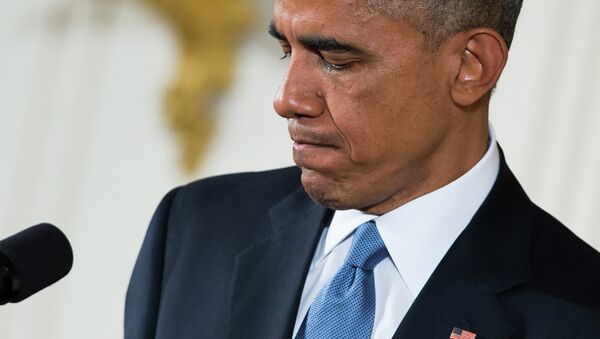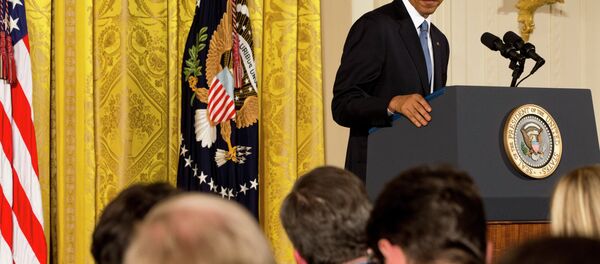Under the US Freedom of Information Act, the government is required to hand over copies of federal records to anyone who makes a request. The only exceptions apply to documents containing information which could pose a threat to national security, violate personal privacy, or disclose other confidential material.
In 2014, US government agencies cited these exceptions for a record-breaking 554,969 requests.
"What we discovered reaffirmed what we have seen all too frequently in recent years," AP’s chief executive, Gary Pruitt, wrote of the study’s findings. "The systems created to give citizens information about their government are badly broken and getting worse all the time."
The AP found a series of tactics used by the government to keep information from the public.
Of the 714,231 FOIA requests made in 2014, federal agencies responded to 647,142, a 4% decrease from the previous year. Of those requests which were responded to, the government set another record: censoring or completely denying access to 39%.
While some of the censoring was clearly done to protect individuals private information – the blacking out of Social Security numbers, for instance – other times "it completely marked out nearly every paragraph on pages."
215, 584 other requests were also denied, either on the grounds that the documents couldn’t be found, people refused to pay high copy costs, or because the request was deemed unreasonable.
"We actually do have a lot to brag about," President Obama’s spokesman Josh Earnest said of the White House’s own release of requested documents, which reached 91% in 2014. But that percentage is, in fact, a record low for the Obama administration, and the calculations don’t even take into account the requests which went unfulfilled due to lost documents, copy fees, or unreasonable requests.
On Tuesday, the White House announced it was exempting itself from Freedom of Information Act requests, arguing that it isn't a federal agency.
So what information, exactly, is the government trying to conceal? According to Pruitt, records which were finally granted to the AP revealed a series of embarrassments. During the riots in Ferguson, law enforcement attempted to restrict airspace to news helicopters which were trying to cover the incident. In another instance, the FBI was revealed to have pressured local police to hide details about the Stingray surveillance operation.
The AP also obtained emails in regards to who was paying for Michelle Obama’s evening wear. One sentence, blacked out in one email but overlooked in another, read: "We live in constant fear of upsetting the WH (White House)."
Agencies are also required to fast track journalist requests for critical information which could affect breaking news. The law is meant to ensure that the citizenry receives information vital to its participation in the democratic process. Over the past six years, these requests have steadily fallen, with less than 1 in 8 being granted.
But perhaps it’s not surprising which is the least transparent of the 100 agencies which received FOIA requests. Currently conducting the covert drone war which has killed thousands of civilians, the CIA has denied 100% of these fast track requests over the last two years.





